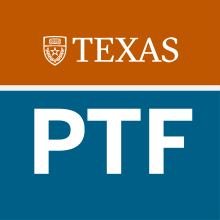Individual Fellow Initiatives

Implementing Computational Modules into the Materials Science and Engineering Undergraduate and Graduate Curricula
The development of increasingly powerful computational resources has made computational competencies new core forms of literacy that should be formed as part of basic education across all STEM fields.

SafeTeach Collaborative
The SafeTeach Collaborative is a learning community that aims to improve faculty and graduate students' ability to handle classroom safety issues by developing their knowledge, self-efficacy, and instructional strategies. The program utilizes interactive methods including role-play exercises, scenario-based learning, and case study analyses to engage participants in realistic safety situations. The project's design fosters peer support networks, ideally providing participants with ongoing resources for addressing safety concerns.

Early Exposure to Data Skills in Introductory Biology Sequence
Biology continues to be seen as a field for science-interested, but math-disinterested students. However, due to the surge in data use in all biology careers, and the focus in research on sequence data, there is a strong need for data skill development in biology degree programs. Math anxiety poses a specific challenge for biology education. A suggestion to overcome this, is an early introduction to data skills in the two-course sequence of Introductory Biology.

Making New Scientists: Supporting the Training of Incoming Science Majors
Traditional science degree programs concentrate primarily on content and are not known for preparing their graduates with other skills needed for scientific careers.

Engineering Sentences: A Cross-Disciplinary Training Program
Although Cockrell School of Engineering (CSE) undergraduates take a required engineering writing class, which I teach for Chemical Engineering, they typically struggle with writing laboratory and long-form research reports. Helping CSE students to overcome this obstacle matters because writing technical reports prepares engineering students for the writing-intensive work of a professional engineer. Faculty teaching these classes would also benefit from higher quality student work.

Valuing Humanities Education at the University of Texas
For some time now the humanities have been “in crisis,” but the crisis is becoming acute: majors in nearly all humanities fields have been sharply declining, enrollments are down, hiring of tenure-track faculty is down, and, at some colleges and universities across the United States, whole departments are being eliminated. Here at the University of Texas, majors that are growing seem to be ones that promise a literal return on investment (invest money in a degree and get that money back, in the form of a well-paying job upon graduation) or at least suggest an obvious and practical use.

Strategic Course Redesign Focused on Professional Skills
The goal of this project is to shift the focus of a set of introductory courses, that are heavy in disciplinary content, in order to make space for greater emphasis on professional skills, such as information literacy, quantitative reasoning, communication, and others. The main challenge in accomplishing the goal is that the particular courses involved have high-enrollment—2300 undergraduates enroll in each course each year and they are taught by a team of 13 faculty. Because many faculty teach the courses, it is difficult to standardize the curriculum and the expectations across sections.

Data Analysis Tools: Integrating Computational and Statistical Techniques in the Environmental Engineering Curriculum
The goal of this project is to train the next generation of environmental engineers in computing and statistical techniques to solve big data problems. Current undergraduate students in the Department of Civil, Architectural and Environmental Engineering have little to no exposure to computational and statistical methods for data analysis (e.g., big data collected from sensor networks). I proposed to integrate computational techniques in several courses throughout the Environmental Engineering Degree.

BA Colloquium in Theatre and Dance
The BA program in Theatre and Dance lacks adequate faculty mentorship and an identity as a program. A recent poll of BA students in Theatre and Dance on strengths and weaknesses of the program revealed that many BA students see themselves as “second-class citizens” in a department that offers three highly structured and mentored BFA programs in dance, teacher certification, and acting.

Performance Training for Instructors
Currently, there is a lot of momentum to support instructors interested in employing evidence-based pedagogy in the classroom. However, a significant portion of the success of a course depends on the instructor’s ability to positively engage with students. Many (if not most) instructors have never been formally trained in effective communication methods that engage students and foster trust between students and faculty.

Empowering Undergraduate Entrepreneurship at UT: The Longhorn Entrepreneurship Ambassador Program
Austin is a hotbed for innovation and entrepreneurship, and yet, until recently The University of Texas at Austin provided few structured undergraduate programs focused intentionally on entrepreneurship. That realization propelled PTF Luis Martins to propose the creation of a minor in entrepreneurship as his PTF project. The Entrepreneurship Minor, offered by the McCombs School of Business and open to all undergraduate students at UT Austin, is now a reality, and began accepting applications in February.

The Collaboratory: Interdisciplinary, Arts-based Pedagogy for Use in New and Emerging Learning Environments
One of the top concerns from many employers is that college graduates lack the “soft skills” (collaboration, team-based skills)and professionalism they require. Collaboratory students will have the opportunity to master the latest skills in their field and develop “soft skills” like creative problem-solving problem solving and communication to help them thrive over the course of their careers.

